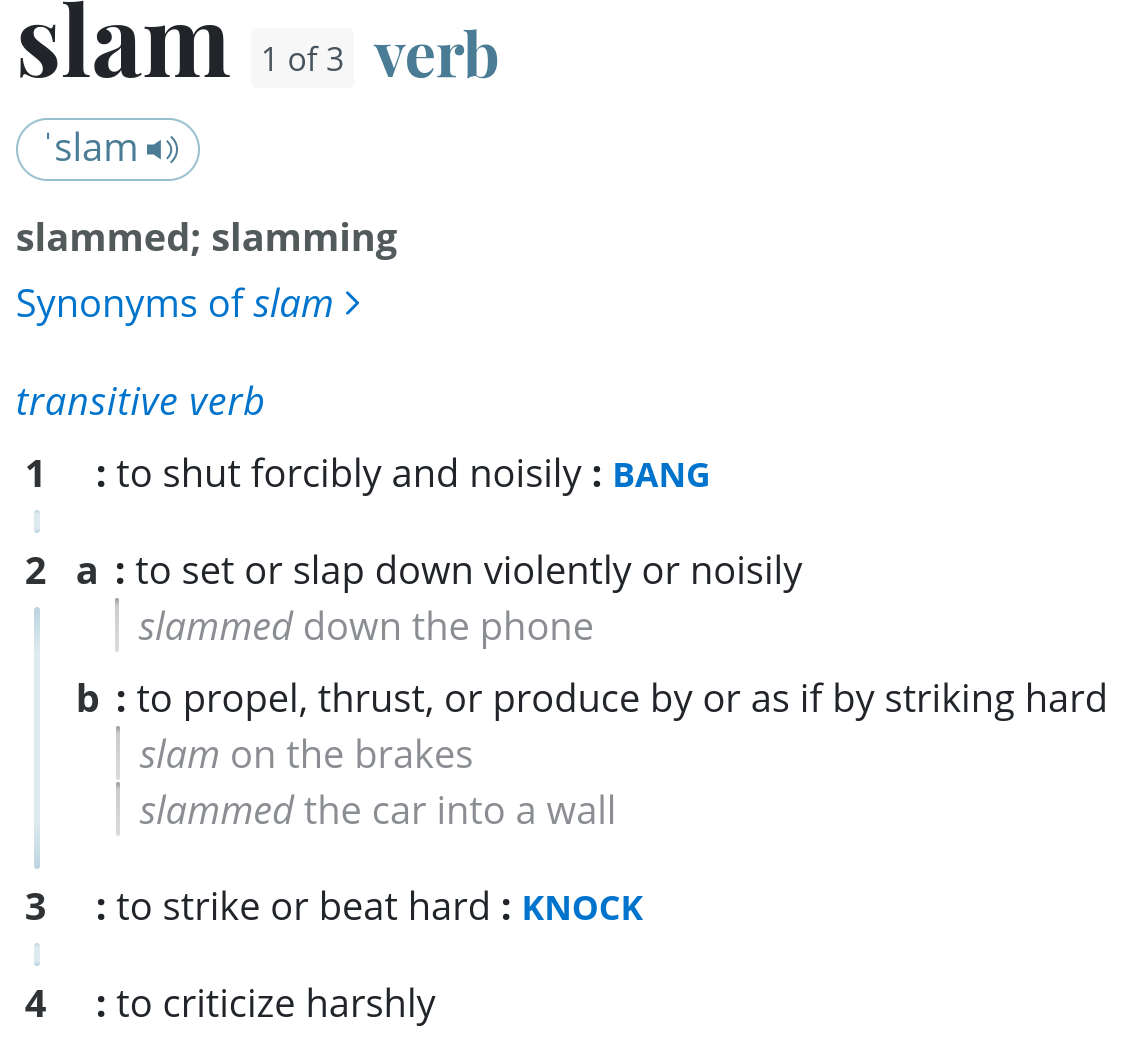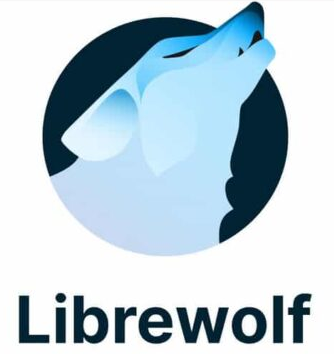EDIT: Apologies. Updated with a link to what gorhill REALLY said:
Manifest v2 uBO will not be automatically replaced by Manifest v3 uBOL[ight]. uBOL is too different from uBO for it to silently replace uBO – you will have to explicitly make a choice as to which extension should replace uBO according to your own prerogatives.
Ultimately whether uBOL is an acceptable alternative to uBO is up to you, it’s not a choice that will be made for you.
Will development of uBO continue? Yes, there are other browsers which are not deprecating Manifest v2, e.g. Firefox.
They should recommend switching to Firefox instead. It’s clear that Google cannot be allowed to have a monopoly on browsers.
Even better is FF mobile (on Android) supports full list of addons, including uBlock Origin.
The using the web without uBlock Origin is cancer.
How do you account for all other apps? My personal preference is using VPN along with DNS filtering to cut shit out system-wide.
I’m on iOS but the number of telemetry, tracking and ad domains requested by apps outside the browser is alarming (many of them owned by Google).
Though not container tabs (yet)?
Unfortunately no.
The title is misleading, or false.
https://github.com/gorhill/uBlock/wiki/uBlock-Origin-works-best-on-Firefox
This document explains why uBO works best in Firefox.
The title is misleading, or false.

Welcome to 2024, where people only read the headline and the article is compiled by AI
They should I’ve been using mull on mobile and Librewolf on Windows 10 since the first time Google announced these Anti Adblock intensions. Must be a few years now.
I did mess with Thorium a little when it claimed to be the fastest browser on earth but yeah apart from that I’ve been using hardened Firefox forks
Comment from gorhill (the developer of uBO and uBOL):
I didn’t recommend to switch to uBO Lite, the article made that up. I merely pointed out Google Chrome currently presents uBO Lite as an alternative (along with 3 other content blockers), explained what uBO Lite is, and concluded that it may or may not be considered an acceptable alternative, it’s for each person to decide.
https://www.reddit.com/r/uBlockOrigin/comments/1ejhpu5/comment/lgdmthd/
“uBlock Origin developer slams NeoWin, backpedals on recommendation!” —NeoWin editors, probably.

Sounds about right for any news outlet. “Slams” is so overused, and usually nowhere near an accurate euphamism.
How did supposedly intellectual people ever conclude that we should use the word “slam” on the daily in headlines?
It’s straight out of Idiocracy and I will never get used to it.
Because not only is it emotive (and they love emotive language to get you to click), it’s also just an objectively fantastic word for a headline in that it’s very concise and helps headlines fit on a single line.
Headline space is limited, so it’s easier to go with “X slams Y over Z” as opposed to “X criticises Y over Z” or “X denounces Y over Z” or “X castigates Y over Z”
It’s annoying how much it’s seen. But I get why they do it.
it’s also just an objectively fantastic word
100% disagree
“X criticises Y over Z” or “X denounces Y over Z” or “X castigates Y over Z”
All of these are better. They’re honest about what’s happening and most people understand them. “Slams” implies some level of violence or at least force. Not only isn’t that dishonest most of the time, it could devalue the word to that point that it just simply has no meaning. I refuse to internalize it as best as I can, but if they had their way I would think “slam” means a brutal vitriolic takedown. Instead I know it normally means “mildly comments on” these days.
Fuck “slam” in headlines.
You’re interpreting me saying “it’s objectively good in headlines because it’s extremely short and clear what it means” as “I love it when they say ‘slams’!”
I was very explicit in saying I don’t like it. It’s just objectively (not subjectively) a good word for headlines.
I am not making an emotional argument to you. I’m just answering the question of why they use it. If you didn’t actually want an answer to the question, you should’ve made it clearer it was a rhetorical question.
Slam does not imply violence or force lol.
If you didn’t actually want an answer to the question
I thought it’s clear when we ask a question that can’t actually be answered, because thousands of journalists are not one person we can ask, it’s not meant to be taken 100% literally.
Slam does not imply violence or force lol.
Of course it does. That’s 100% the only reason why they use it this way. Notice how that’s explicit in every definition but the last (the newer, still less-common usage I’m taking issue with):

I love when people want to quibble about word definitions, being super strict or loose whenever it suits them. In the real world, people use words loosely and over time the connotation changes. Hence definition 4’s existence here.
My main problem with using the word this way is that it’s rarely honest. I am annoyed by it because it sounds stupid, but like I said, more importantly:
if they had their way I would think “slam” means a brutal vitriolic takedown. Instead I know it normally means “mildly comments on” these days.
Ragebait gets more clicks.
Well yes, obviously. My question is more about how they pretend it’s not just ragebait.
Very simple, they learned not to care and the ones who did care got weeded out.
Intellectual? Shit, that doesn’t pay.
Unless you’re lucky enough to get tenure, or stumble upon a fact of the universe that no one knew and just happens to be relevant to a modern economy.
I only use Firefox and have for the past few years. Yesterday I tried to schedule an appointment to get my oil changed at the dealer but was unable because the process on the site just flat-out breaks on Firefox. This is not a complaint about Firefox, but the fact that Chrome is so popular that some websites only work with Chrome. I don’t have a Chromium-based browser installed (besides Edge, which I’ve never opened intentionally) and I despise being on the phone (which is why I was trying to schedule online in the first place), so I just didn’t make the appointment. I’ll go somewhere else to get my oil changed. Sorry for the rant but it was extremely frustrating.
Chrome is so popular that some websites only work with Chrome.
It’s the Internet Explorer problem all over again, but this time from an even more invasive company.
The more people choosing non-Chomium browsers, the better. It’s the only way to preserve what little agency users still have on the mainstream web.
Are you sure that it was Firefox itself? I find the few times something like that has come up, it was because of extensions (like adblocl, actually).
Delta’s website started blocking me due to using Dark Reader, apparently something about detecting that the contents of the page were being altered. And another site worked fine when I disabled unlock; I assume because it was blocking loading some .js that was actually being used for something other than just ads.
https://addons.mozilla.org/en-US/firefox/addon/chrome-mask
This addon will work if it’s not letting you
I’ll check it out. Thanks!
Not necessarily. The problem is often that chrome JavaScript implementation can be ever so slightly different from FFs. Or just that the web devs wrote fragile code that is barely working on chrome and doesn’t work on other browsers, where they failed to test.
Worth keeping around at least
Out of principle, I refuse to pretend I am not browsing with Firefox. 🦊❤️✊ Let website statistics show! And I will boycott sites that break due to not testing on multiple browsers!
I thought like that until youtube started intentionally slowing firefox identifying clients. As soon as I changed my user-agent to match chrome’s the speed was back to normal.
Lol I blocked all but essential JS on YouTube with NoScript and never faced any problems at all. Videos load just fine without extra penalties.
That works until it’s your bank or credit card website. I cannot use Capital One’s (CC) “pay bill” any longer.
Luckily it hasn’t come to that for me yet. But I have reported issues with my bank’s website to them, and it had been fixed.
Change banks
Weird.
Super annoying to have to fire up chrome (brave) to pay my CC bill
Adding to this, Firefox’s JavaScript is much more strict than others (which I love). As a web developer I prioritize testing it in Firefox because it’s helped me find bugs other browsers just plow through.
Personally I use Safari daily and the number of websites that are broken due to poor security (but function fine in Chrome) is alarming. Chrome doesn’t even check content type on
<iframe>last time I checked.I tend to agree with you. Normally if something doesn’t work in firefox it makes sense, but less often is that the case in chrome.
I am fascinated by the idea of a web developer choosing to use Safari, honestly, though. Can I ask why? For me, the hesitancy of adopting new web standards, the lack of a real extensions, and lack of support for non-Apple OSes… combined with lots of random bugs that I only ever see so often in Safari, I absolutely loathe that browser. And I feel like being a web developer conditioned me to feel this way. And then there’s the business practice concerns (Apple selectively supporting new web features with the intention of keeping native apps seen as superior, because it makes them money)… but even ignoring this, I’m a Safari-hater through and through. It feels like Internet Explorer 7 vs Firefox to me.
On iOS I have to support a few major versions of Safari back and it’s nightmarish at times. For certain featuresets, you absolutely cannot assume things will probably work like you can with FF/Chromium browsers and it makes me so ragey sometimes. I’ve been spending the last few weeks trying to workaround an issue in various Safari iOS versions, and it’s not the first time I’ve been in this situation.
I’m curious – what versions of Safari are you required to support on the job?
Personally
This was my poor attempt to mean “as an end-user.” I just love that it’s tied in to the Apple ecosystem and the UI is so much cleaner than other browsers.
I’ve tried to make the switch to others but they always feel very clunky. I love Firefox to death but it looks awful (at least on macOS). I’m not a big extension guy because I’m filtering DNS and IP traffic at the network layer — if we’re talking about ad blocking, tracking and the like it doesn’t make sense to only protect against it in the browser, as apps tend to send traffic to the very same domains as the websites.
I actually hate the trend of apps being nothing more than a wrapper around web applications. It comes off as lazy development, and I miss native apps (regardless of platform) instead of these creepy wrappers around web applications. So I actually have to agree with Apple there.
As for browser support, my team works on an internal-only app and our security policy doesn’t allow outdated browsers, so there’s no hard rules when it comes to browser support.
Man, you never worked for a large corporation that that had internal web based apps that only work on Internet Explorer and refused to update it.
I worked somewhere like that back in the 2008-2010 time frame. Thankfully, there was a extension, I believe the name was “IETab”, that would spawn a new tab in Trident (IE’s browser engine). So you could set certain sites to launch in one of those tabs and everything else would use standard Firefox. None of the people I supported were any the wiser. They just thought everything worked in Firefox.
Granted it was only that seamless because Windows already had that rendering engine built in. There are some extensions that do something similar with Chrome, but because of more modern security standards and whatnot you have to install extension helper applications which is gross.

What are the main differences, for someone considering going from Firefox to Librewolf?
Librewolf is to Firefox what Chromium is to Chrome, essentially. Removed many bloated Mozilla anti-features, has sensible (but not paranoid) privacy and security defaults and ships with uBlock origin pre-installed. You can archive all of that with Firefox, but Librewolf makes things easy for you.
the first comparison is not technically correct, in the sense:
- Chrome is built on top of Chromium
- LibreWolf is built on top of Firefox
LibreWolf implements additional privacy features and settings on top of Firefox. Chromium is the base browser that everyone else built on top of. It does not implement additional privacy features.
perhaps a better comparison would be: LibreWolf is to Firefox what Ungoogled Chromium is to Chromium
Librewolf is hardened out of the box whereas with Firefox, you have to harden it yourself
Hell yeah
I don’t want to let go of my poor Vivaldi it’s a blast of a browser
Oh, how I get you! I managed to switch to Firefox after a while, but it took some adapting, and still I miss some of Vivaldi’s features. That sidebar is just fantastic.
@TheImpressiveX
Mayve you should update the title, since it is factually incorrect.
Thanks, fixed.
Well I don’t use Chrome, so…
Already switched as soon as I learned of Google’s plans. They can go screw themselves for doing this. Firefox, the land of the free and open source!
I agree with them. Better switch to Firefox.
What the uBlock dev actually said:
Manifest v2 uBO will not be automatically replaced by Manifest v3 uBOL[ight]. uBOL is too different from uBO for it to silently replace uBO – you will have to explicitly make a choice as to which extension should replace uBO according to your own prerogatives.
Ultimately whether uBOL is an acceptable alternative to uBO is up to you, it’s not a choice that will be made for you.
Will development of uBO continue? Yes, there are other browsers which are not deprecating Manifest v2, e.g. Firefox.
I’ve been using uBOLite for about a year and I’m pretty happy with it. You don’t have to give the extension access to the content on the page and all the filtering on the browser engine, not over JavaScript.
PPAPI really ruined this all NPAPI FTW
Understatement, I know, but I find this so annoying, and it certainly feels malicious.
I was just commenting the other day how ridiculous it is that google search results literally serve up malware to people via paid ads. My neighbor was running into issues where her computer kept getting “infected” and a full screen scam would take control, blaring out a loud message that her computer was infected with a virus, that it was infecting microsoft’s servers, and she had to call them now to fix it.
After investigating, I found out that these types of scams are stored as blobs on Microsoft’s cloud service, but the links are spread via ads in google search. When I tried searching for the exact search terms my neighbor was using on my own devices and my own network, I found out that google was serving me the exact same ads, aka sponsored links. They look like legitimate results for things that people search for, like showing what appears to be a link to Amazon when searching for a product, even the links will say “www.amazon.com”.
Obviously I told my neighbor not to use Chrome and suggested some browser alternatives. I installed uBlock on all the browsers (including chrome) just to be safe. Then I showed her how to tell when things are ads, even when they are deceiving, and to never click on ads or sponsored links under any circumstances.
But it’s definitely infuriating that they are serving up malware in their ads, don’t respond to reports in a timely manner, are getting people caught in scams that they allow to advertise on their network but then somehow object to people managing those risks by blocking ads from untrustworthy sources, like google.
I just did a cleanup on someone’s computer that got this. They actually called the number and got scammed out of their whole life savings. The usual Indian scammers.
I know, that some day I will have to switch to Firefox. But I’m putting it off as long as I can, as I don’t like that browser. I will have to instal a shit load of add-ons to get the customisability of Vivaldi, and I doubt k will get it all.
Do you even need uBO on vivaldi, though? A friend of mine recently had an issue of sites breaking, even with all addons disabled. As we found out, vivaldi already has a built-in adblocker, which uses pretty much the same lists as uBO. In the end it turned out to be one of the easylist’s borked rules…
This has been a long time in the making…hopefully Firefox will see a market share increase. Google is doing this right as they get slapped by an antitrust ruling ironically lol. If you haven’t already just go ahead and switch, if you like Lemmy you’ll probably like Firefox as well.
Side note: I try not to be negative here, but this would be a great time for Mozilla to get their act together as an organization. Love Firefox and the idea, but Mozilla has been pissing off the FOSS space for a while now with their decisions. If they’ve improved in recent years, disregard this.
Can you share some examples of things that pisses off the FOSS space? Mostly just curious to understand more
Here’s the most recent example:
The browser that promises “no shady privacy notices or advertiser backdoors” on its storefront has suddenly added an experimental feature to beam user interactions to advertisers and enables it by default. Many are not happy.
That’s a good thing
Getting trackers out of cookies is something users want
It should be noted that the advertisers get zero personal information, neither does Mozilla, and it has been designed in a way so that the data is impossible to fingerprint in a way that can tie it back to any individual person, machine, or specific location.
It’s a way for advertisers (and like it or not, a decent amount of the content we want has to be paid for somehow) to see how effective their ads are without anybody’s privacy being encroached on.
Should it have been turned on without informing the user? Fuck no. But there’s a lot of misinformation going around about this.
Personally I’ll still be using uBO regardless so it doesn’t matter though.
Even if Mozilla takes precautions to avoid de-anonymizing our data, any private data sold to data brokers becomes a part of the puzzle for learning our identities
https://en.wikipedia.org/wiki/Data_re-identification
Even knowing something a trivial as two movie ratings led to a 68% success rate in learning an identity.
I suggest you actually look into how their system works. This kind of strategy is not possible with Mozilla’s system.
In fact, your very link points to ‘Differential Privacy’ as a very effective foil to re-identification, and that’s basically how the Mozilla system operates.
This is not a matter of Mozilla having a load of data about your account or IP, then Mozilla scrubbing that information then sending the database to advertisers.
I appreciate your informed response but no system other than advertising-abstinence is fool proof.
Im saying this as a supporter. My browser of choice is firefox and I send them money regularly. And I understand their need to generate more revenue. But there has never been a company who has sold customer data discretely. My understanding is that every piece of data that’s sold can be de anonymized when combined with other data sets. And the data is horsetraded until it gets into some very marginal actors’ hands.
Mozilla’s need for money is largely driven by massive mismanagement. It should have been fully funded in perpetuity through establishing a foundation that operates off interest payments but they decided to try and build a headquarters in Mountainview. They also operate offices in some of the most expensive cities in the world. They have made expensive software aquisitions. These are not necessary and have only whetted mozilla’s thirst for other revenue sources. It’s guaranteed that they will look for more customer data to sell because that’s the path of least resistance.
I wish them luck but I also wish they’d not chase advertising money.
As for the “no system is foolproof”, you’re thinking of implementations, not algorithms. An algorithm can indeed be something-proof. Most “known” algorithms are built on top of very strong mathematical foundations stating what is possible, what is not and what is a maybe.
As for the ads thing, Mozilla is not making a dime off this. It is not monetizable. They’re basically expecting that by giving advertisers a fairly “benign” way to do their shenanigans they will stop doing things the way they currently do (with per-individual tracking).
The absolutists might say that there’s no such thing as benign ads, however truth is that the market forces behind ads are big enough that you’d get website-integrity-bullshit rather ad-free web. Having tracking less ads is better than having a “this website only works in chrome” or “only without extensions” internet.
Is there any other possibility? Maybe. Is is reasonable to think that the moment tracking starts getting blocked em masse, we risk a web-integrity-bullshit +wherever-said-tracking-can-exist-only internet? I think so.
The tricky part is that Google isn’t wrong about Manifest v3 increasing security for some people. Just allowing any extension to access the full URLs from a webpage is honestly pretty sketchy for most things that aren’t adblockers. Think about Beth in accounting who has 27 bloatware toolbar extensions installed on her home PC, which are happily collecting her full browser history and sending it off to gods know where. Manifest v3 is targeted at increasing security for those users, by making it more difficult for extensions to track you.
The issue is that it also makes ad blocking virtually impossible, because the blocker is forced to just trust that the browser is being truthful about what is and isn’t on the page. And when the browser (developed by one of the largest advertisers in the world) has a vested financial interest in displaying ads, there’s very little trust that the browser will actually be honest.
The issue is that there’s not some sort of “yes, I really want this extension to have full access” legacy workaround built in. Yes, it would inevitably be abused by those scummy extensions, which would just nag idiot users to allow them full access. And the idiot users, being idiots, would just do it without understanding the risks. Even if Chrome threw up all kinds of big red “hey make sure this extension actually needs full access and isn’t just tracking your shit” warning flags, there are still plenty of users who would happily give bloatware full access without reading any of the warnings. But it would also allow ad blockers to continue to function.
The single biggest security improvement you could make for Beth in accounting would be to install UBO. Where do you think she gets all those shitty toolbar extensions? That’s right, from ads.
This is targeted at destroying adblockers because Google is, first and foremost, an ad serving company. That’s their business model. It incidentally improves security for certain users in certain edge cases, because they need some kind of figleaf of legitimacy.
Ads and crappy installers, all though that seems less common than it used to be. I can’t say if that’s a general trend or tunnel vision due to me not installing crapware.
If it was about security then they should simply block Manifest v2 extensions from their store or at least start doing some actual verification of the extensions they host. Taking away freedom claiming it to be for security is almost always a lie.
Verify! But what will all the “Cändy Crunch 7 Browser Edition with 12 Free Play Levels” players do?






















